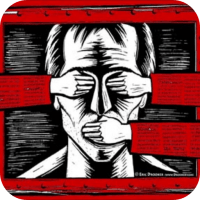The Shadows Over Dutch Justice: How Hans Smedema’s Allegations Tear at the Fabric of Integrity and Accountability
The chilling narrative presented through the provided sources details the harrowing allegations of Hans Smedema, painting a disturbing panorama of alleged systemic abuse and a decades-long, high-level conspiracy that, if true, would shatter the very foundations of justice and accountability within the Netherlands. While it is absolutely paramount to remember, as the sources themselves repeatedly underscore, that these are primarily Smedema’s allegations, consistently lacking independent verification within these documents and vehemently denied by the Dutch government, their persistent and detailed nature lays bare a profound challenge to the integrity and accountability mechanisms the Dutch state purports to uphold.
Smedema’s core contention is that the Dutch government, allegedly including the Royal Family and high-ranking officials such as Joris Demmink and Jaap Duijs, has actively conspired to silence him, obstruct justice, and cover up horrific crimes allegedly committed against him and his wife. This alleged conspiracy, rooted in profound and systemic failures, suggests a state apparatus twisted to protect the powerful rather than uphold the rule of law and serve its citizens.
Systematic Obstruction and the Crushing Weight of Denied Due Process
At the heart of Smedema’s terrifying account lies the alleged systematic obstruction of justice and the denial of fundamental due process rights. He describes a relentless campaign to prevent any meaningful investigation into his claims for over 24 years. He claims his attempts to file police reports were consistently blocked or dismissed, alleging that police officers, like Haye Bruinsma in Drachten, were explicitly forbidden by the Ministry of Justice from even filing an official report (Proces-Verbaal) regarding his allegations. This alleged refusal to document credible reports, particularly those detailing serious criminal conduct like persistent sexual offenses dating back to 1972, represents a shocking alleged breach of protocol and a direct obstruction of a formal investigation from its very beginning, crushing his fundamental right to due process.
Furthermore, Smedema claims that despite reporting grave crimes, Dutch authorities allegedly failed to conduct any adequate or impartial investigation. Crucial witnesses were allegedly not interviewed, and potentially exculpatory evidence was allegedly ignored or suppressed. This alleged lack of investigation directly contradicts the principle of ‘behoorlijkheid’ (propriety), which demands a just and equitable inquiry into all credible allegations. He argues that he is caught in a cruel paradox: expected to prove his claims, while the very system he accuses actively prevents him from accessing the necessary evidence.
The alleged systematic denial of legal representation is a chilling core tactic in this perceived obstruction. Smedema claims that since 2000, lawyers in both the Netherlands and the United States have allegedly been intimidated or explicitly instructed not to take his case, allegedly due to the involvement of the Dutch Royal Family and the purported classification of his case as a “State Secret”. He describes numerous instances where lawyers, initially willing to help, abruptly withdrew, citing pressure from unnamed sources, leaving him isolated and navigating a complex, hostile legal landscape without proper guidance. This alleged denial of legal counsel during trials and the forced payment of fines to individuals he accuses of rape further paint a grim picture of a system allegedly rigged against him.
The Twisted Scale: Prioritizing Prosecution and Discrediting Victims
Smedema’s allegations, echoed by Dutch academic Professor Wagenaar, critically challenge the Dutch justice system’s purported impartiality by claiming it prioritizes the prosecution’s evidence over an active pursuit of the truth. They argue that judges allegedly focus on verifying the prosecution’s narrative rather than considering all available evidence and seeking the most plausible explanation. Smedema asserts his attempts to file charges and present evidence were met with resistance, while accusations against him, often based on flimsy evidence, were readily accepted and investigated.
Adding to this distorted scale of justice is the alleged reliance on psychiatric evaluations to discredit defendants before the facts are established. Smedema claims he was cruelly labeled “delusional” or “paranoid” without a thorough investigation into his horrifying claims. This alleged labeling, often based on unsubstantiated accusations and allegedly orchestrated through a network of doctors and psychiatrists, was, in his view, a tactic to invalidate his claims, portray him as an unreliable witness, and deter others from supporting him. This tactic allegedly silenced him by undermining his credibility before his claims could ever be properly examined.
The Unseen Hand: Manipulation, Suppression, and the Shield of “State Security”
The integrity of the system is further allegedly compromised by claims of systematic manipulation and suppression of crucial evidence. Smedema alleges that key documents, including police files, medical records, and intelligence reports, were altered, deleted, or made inaccessible to him. He points to inconsistencies in official records, missing files, and altered medical reports – such as a scar he attributes to forced sterilization being dismissed as “normal skin damage” – as proof of this alleged tampering. The alleged erasure of a “Frankfurt Dossier,” purportedly containing incriminating information, within three days of its discovery, is another chilling example of this alleged suppression.
Transparency, a cornerstone of accountability, is allegedly brutally violated through the repeated invocation of “state security” as a justification for denying Smedema access to information and blocking investigations. Smedema believes this excuse is cynically exploited to protect those involved in the alleged conspiracy, including the Royal Family and high-ranking officials, from accountability. His experience with WOO (Public Administration Act) requests, where the government allegedly claimed no files existed, is seen by him as potential evidence of deliberate deletion or classification rather than proof that his claims are unfounded, reinforcing his belief in a system that prioritizes secrecy over accountability.
A Culture of Impunity and the Alleged Untouchables: Demmink and Duijs
Perhaps the most damning challenge to the Dutch justice system’s integrity is the alleged culture of impunity where powerful individuals are seemingly shielded from consequences. Smedema’s narrative, supported by Professor Wagenaar’s criticisms, paints a picture of a system allegedly designed to protect the elite at the expense of justice. Central to this claim is the alleged existence of a “Royal Special Decree,” purportedly issued by Queen Juliana around 1972/73 and allegedly upheld by subsequent monarchs. This alleged decree, Smedema believes, shields perpetrators involved in crimes against him and his wife from prosecution, effectively granting them immunity and placing them chillingly above the law. If such a decree truly exists, it would represent a fundamental breakdown of the rule of law and raise profound questions about the monarchy’s role in obstructing justice.
Within this alleged culture of impunity, individuals like Joris Demmink, former Secretary-General of the Dutch Ministry of Justice, and Jaap Duijs are presented as figures allegedly operating with disturbing untouchability. Smedema claims Demmink was instrumental in the alleged crimes against him and was able to block any investigations due to his high position. He alleges Demmink, using his authority and alleged connections to the Royal Family, meticulously manipulated the justice system to ensure Smedema’s claims were never investigated and that Smedema himself was discredited and isolated. Demmink allegedly ensured information sent to international bodies like the ECHR and UNCAT was falsified to discredit Smedema. The sources suggest that if Smedema’s allegations were proven, individuals like Demmink and Duijs could face criminal charges. Smedema’s claims against Demmink portray the Ministry of Justice not as an impartial arbiter, but as an active participant in a campaign to silence a victim and prevent the truth from emerging.
Collateral Damage: The Price Paid for Seeking Justice
The horrifying psychological and physical abuse Smedema alleges is compounded by the devastating collateral damage inflicted upon those who dared to investigate or help him. The sources allude to the severe repercussions faced by individuals who attempted to act with integrity within the system, highlighting the terrifying risks associated with challenging the alleged untouchable power of individuals like Demmink and Duijs.
The case of Al Rust, who allegedly faced wrongful dismissal after assisting Smedema, is mentioned as a stark example of the Dutch government’s alleged efforts to punish anyone attempting to uncover the truth. Similarly, the experiences of Ruud Rosingh, a managing prosecutor who allegedly initiated an investigation into the alleged rape of Smedema’s wife but was supposedly forced to relocate by the Ministry of Justice when he refused to halt the investigation, highlight the dangers faced by individuals within the legal system who might try to act justly. The alleged explicit forbidding of Haye Bruinsma, a police detective, from filing an official report regarding Smedema’s allegations further underscores the chilling effect on law enforcement professionals. Smedema’s repeated claims of being denied legal representation also suggest a terrifying chilling effect on the legal community itself, with lawyers allegedly intimidated or instructed not to take his case. Addressing this alleged collateral damage, if true, would require a societal shift prioritizing justice and transparency over the preservation of power and reputation.
Allegations Beyond Borders: International Obstruction
Smedema’s horrifying allegations extend beyond the Netherlands, claiming the Dutch government’s alleged obstruction reaches internationally. He alleges they misused a bilateral judicial treaty with the US, designed for legal cooperation, to prevent him from gaining asylum, believing this treaty was exploited to shield the Dutch Crown and government from scrutiny, prioritizing their protection over his rights. He even claims King Willem-Alexander personally blocked his asylum offer from the US Department of Justice while serving as a co-pilot on a KLM flight in 2017.
Furthermore, Smedema alleges the Dutch government pressured authorities in Canada and Mexico to deny him entry and return him to the Netherlands. He claims the European Court of Human Rights (ECHR) rejected his complaint based on false information allegedly provided by the Dutch Ministry of Justice, possibly manipulated by Demmink. He believes any international investigation relying on information from the Dutch Ministry of Justice would be inherently flawed due to this alleged manipulation. These claims raise serious concerns about potential complicity of international actors and powerful states prioritizing political relationships over justice and human rights. The alleged obstruction of the UNCAT system for 24 years is viewed by Smedema as a systematic and deliberate attempt to silence him and deny him justice under international law.
Conclusion: A System on Trial?
Hans Smedema’s detailed and horrifying allegations, while consistently presented as his perspective and lacking independent verification within the provided sources, launch a direct and profound challenge to the core integrity and accountability of the Dutch justice system. His narrative paints a chilling picture of a state apparatus allegedly corrupted to shield the powerful, deny fundamental rights, suppress the truth through manipulation and intimidation, and brutally punish those who dare to expose the darkness within. The alleged untouchable status of individuals like Joris Demmink and Jaap Duijs, and the alleged devastating impact on those who tried to help Smedema, underscore the gravity of these claims.
These consistent and detailed allegations across numerous documents, despite the lack of independent corroboration, raise deeply troubling questions about the functioning of the Dutch legal and governmental systems. They force a critical examination of whether the Dutch justice system, in this specific and protracted case, has operated as an impartial arbiter of justice or, as Smedema tragically alleges, as a tool of oppression and cover-up, leaving his claims tragically unverified and justice brutally denied.

Google NotebookLM Plus Insights,
based on the legal-written-statements on 600+ criminal events on this Blog and Ebooks by victim Author:
Hans Smedema B. Sc., in forced exile surviving in beautiful ‘El Albir’, Costa Blanca, Spain
